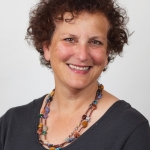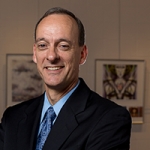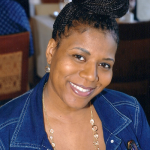
Americans for the Arts









Bob Morrison and host of other movers and shakers in New Jersey arts, arts education, education, and politics unveiled the results of the New Jersey Arts Education Census Project today in a graceful and eloquent press conference televised from the New Jersey Network studios in Trenton, NJ.
In a brilliant stroke, the new New Jersey Arts Education Partnership a coalition of supportive leaders and organizations speaking with one voice for arts education made the recommendations from the Project its strategic plan. Is there a better way to make an impact from the data than to make it someone's to-do list? The Partnership is currently hosting committees addressing each major area of the report: students, teachers, policies, resources, and community.
The most potent piece of the data is the mapping: an actual picture of each school district colored according to their Arts Education Index a number like a grade, based upon flexible, comprehensive criteria for high-quality and fully accessible arts education.
Read More



By Nick Rabkin
Center for Arts Policy
Columbia College Chicago
August 8, 2007
It is so rare that arts ed or arts ed research gets coverage in the daily press. The recent article in the New York Times about the "Studio Thinking" research project (1) is significant first because of its rarity. It is already generating a buzz about arts education that we rarely feel.
It is important for another reason as well, though. For the last decade or more a debate has raged about the "intrinsic" vs. the "instrumental" value of arts education. Ellen Winner, one of the "Studio Thinking" researchers, played a very big role in that debate several years ago, when she and colleagues published a "meta-analysis" of arts education research in which she found no evidence that arts learning contributes to student academic achievement. (2) Hence, she argued, it was scientifically irresponsible to make a case for the arts' place in schools because they improve student performance in other subjects. Furthermore, she suspects that education policymakers will reason that if they want to improve math achievement, they will teach more math, not more arts. In the end, the arts are important in their own right and should be justified in terms of the important and unique kinds of learning that arise from the study of the arts.
Some researchers who believed that there was good evidence the arts did contribute to higher achievement across the curriculum criticized Winner's meta-study, arguing that it excluded good research from its scan. As one of many places in the country where teaching artists were inventing new ways to improve schools by connecting the arts to other subjects, many folks here in Chicago felt Winner's study simply ignored their work and contributions. Others, more committed to arts education traditions, thought Winner bolstered their argument against "arts integration" and for "sequential and discipline-based instruction" in the art forms.
Read More

Preserving the important qualities of the Teaching Artist profession, while still moving ahead with its professionalization.
Passing on the vision and practice of art-making is as old as culture itself: creation stories told during long winter evenings, women and young girls weaving baskets, men welcoming boys to their dances. One generation has always taught the next.
This history moves forward into the 21st century. Artists; arts program administrators; school, hospital, senior center, and prison administrators and staff; and professors in a variety of college departments are increasingly asking that the valuable work done for decades by teaching artists be recognized as a professional field.
One repeated conversation is a fundamental one that questions the ways in which professionalization of the field strengthens or harms this work that we love. In the midst of these conversations, I often think of architect Chris Alexander. When brought to the site of a new project, Alexander is said to have asked community members not only what they wanted that they didn't have, but also what they presently had that they valued and did not want to lose.
That's the question I'd like now to ponder: What do we-teaching artists, students, program administrators, site partners, community activists”cherish about the work of art in other places, as Bill Cleveland calls it, as it has been practiced over the decades? What do we want not to lose as teaching artistry becomes a more formal field?
Read More







We are pleased to announce our new and expanded employment resource: Americans for the Arts Job Bank.
You have told us that you are concerned about who will be the next generation of leaders in our field. We hope this service will facilitate your search and become a one-stop shop to help you get connected to top arts employers and job seekers, including new leaders in the field all across America. Our strength is in our numbers-about 60,000 visits to our website per month-which will only increase your visibility.
Read More


After considerable Vegas stimulation and conference information overload, I'm still thinking about yesterday's Arts Education Innovator and Culminating Forum session with Sir Ken Robinson. I first saw him speak in Lisbon, Portugal at the UNESCO World Conference on Arts Education and then lucked out months later by catching his address to the National Governor's Association on C-Span late one night.
Sir Ken Robinson is an excellent storyteller. He's witty, concise and manges to expose deeper meaning through simple narrative. (Check out his new book: "Out of Our Minds"). He makes a strong case for the potential of arts education to address global economic changes and the growing antagonisms between international cultural groups. His discussion yesterday of a "climate crisis in human resources" struck a particular note since some colleagues and I had experienced a related phemenonon at lunch the day before.
Read More



So I decided to return to my hotel room to blog from bed. Vegas is nothing if not exhausting, and I've already seen more fake bodies and drunken frat boys than one San Franciscan can handle. I suppose it's fitting since rumor has it Vegas IS the new Hollywood. This rumor might also explain the trash items found by one of my colleagues underneath her bed at the Flamingo. Fortunately for me, the Flamingo and Harrah's were booked by the time I got my act together to make a reservation so I'm reaping the benefits of a great Hotels.com deal at the Signature at MGM Grand. Just a tip for your next trip to Vegas...
Anyhow, Risk and Reward is definitely the right theme for this conference. It's risky enough just negotiating the Flamingo casino floor to get to your workshop of choice. But all and all, it's the best kind of environment for an arts conference - chaotic, loud, unruly, fast, wildly varied in temperature, and challenging to navigate. It makes you pay attention to where you are going (or staying) which is a fitting metaphor for the state of arts education (in case you haven't had the opportunity to hear Eric Booth so eloquently speak to this yet).
Read More

The Dana Foundation recently convened a symposium in New York on "Transforming Arts Teaching: The Role of Higher Education" as part of their ongoing commitment to arts education, as well as to the role the arts play in the development of the brain. Participants included a wide array of people from around the country who are leaders in arts education, including people from arts organizations, academia, government and the funding community. [The link above takes you a page on the Dana Foundation site that includes some video excerpts from the Symposium.] I had the pleasure of participating as well, and found it particularly relevant to the work we are doing in linking the arts and arts education to workforce development issues. The better job we can do of getting business to be active advocates for arts education because they see it of benefit to their bottom line, the more effective we can be at getting greater recognition and funding of arts education in our educational system which has been so damaged by the relentless focus on measurement of a handful of subject area skills. I thought it would be helpful to share some of the Symposium conversation through this Blog. It is a longish entry so please remember to click the "more" link to read the whole report! Dr. David J. Skorton, President of Cornell University, gave a stirring opening keynote on the importance of the arts in education. He is trained as a musician, and supported himself performing jazz while pursuing his education as a scientist, doctor, biomedical research and academic. His talk wove actual examples of music of different genres into his speech, as well as snippets of video from musical performances. He talked with passion of his belief that arts exposure, participation and training results in graduates who are both better human beings and better workers and contributors to society.
Read More

It seems that every couple of months I run into an article somewhere with the above title. This time it was in the San Diego Business Journal. It has long been rumored that the MFA degree would be the "new" MBA degree as our industrial economy shifts to a creative economy. This always makes me chuckle, mostly because as having an MFA degree, I wish that I were paid anywhere near what most MBA alums are currently making. If the MFA degree is the deus ex machina of the new economy, one would think the value of having one would increase tremendously. I can only hope.
Read More


There's no doubt that these last several months have left many of us with a sense of deep divide—both across the nation and within our local communities. There are many remedies for that and most of them have nothing to do with politics (or presidents). I need to be clear that my writing here is not meant to minimize these deep and abiding concerns, nor should these words be received as an overtly political text. Instead, I simply want to drill down into what I believe art—and specifically in this context, arts education—can teach us in these anxious (for some, though not all) times.
Read More

Leading up to the decade-long work that resulted in enactment of the Every Student Succeeds Act last year—the latest authorization of the landmark 1965 Elementary & Secondary Education Act—Americans for the Arts has been covering developments and sharing opportunities to impact reauthorization with arts advocates. On November 28, 2016, the U.S. Department of Education released final regulations pertaining to state accountability plans. USED fully adopted our recommendations to make clear that the “arts” are statutorily part of a well-rounded education.
Read More

So many terms are tossed around each day in the world of education: personalized learning, student-centered learning, innovation, creativity, proficiency-based learning, 21st century skills, mass-customized learning, competency based education, and on and on. I’ve been thinking more about “innovation in education” lately. It seems that innovation can be a hiccup for many educators. We know that teachers are responsible for so much more today than even five years ago. In this century and the focus on the global economy, innovation is a critical component. Frequently, my thoughts turn to wonderings and questions including: What are we doing in arts education to support and/or teach innovation? Are we providing the opportunity and encouraging learners to create innovative works of art? What is the role and responsibility of arts education and arts educators when it comes to innovation?
Read More

The post-graduation years are considered a rite of passage, where emerging artists navigate crushing poverty, unpaid internships, uninformed financial decisions, and rejection in order to emerge as bona fide artists. People use words like sacrifice and bootstraps. You’re expected to work for free in order to demonstrate your work ethic and “make connections” with important people. These connections, we’re told over and over, lead to paid jobs. Just not yet. Let’s look closely at these expectations through the lens of equity, diversity, and inclusion. In a field that is still white and male-dominated despite encouraging signs of change, those who hold privilege (economic, racial, gender, social, etc.) are better positioned to take the unpaid internships, get that one-on-one meeting with the artistic director, or convince the seasoned leader to take them on as an assistant. How can we better prepare aspiring artists from all backgrounds to enter this field?
Read More

I can remember my first field trip to a music concert at the Symphony Hall when I was in kindergarten. That sole field trip event hardly takes the credit for my entryway into the arts, but trust me, there were many more learning journeys that same year that shaped my appreciation and quest for wanting more of the arts. We were fortunate, when I was in school, to be able to take many field trips to countless arts centers and cultural venues; one: due to our school’s close proximity to downtown Atlanta, and two: field trips were insisted upon decades ago. Not to mention, my arts trajectory was shaped by my mother’s unwavering encouragement. But in so many districts and schools today, arts and cultural field trips are in decline due to the prioritization of math and English-language arts curricula over other subjects. If cultivating (life-long) learners and student achievement is the goal, what field trips provide is a connection to the real world that stimulates the quest for more content knowledge equaling increased student achievement.
Read MorePaul Sznewajs is founding Executive Director of Ingenuity, a public-private arts strategy, advocacy and grant-making entity that ensures the arts are a central component of U.S. public education. Under Paul’s leadership, Ingenuity has driven the most progress in Chicago arts education in nearly four decades, increasing arts access, quality and equity for hundreds of thousands of students every year. Ingenuity received the 2013 Chicago Innovation Award as one of the city’s ten most innovative companies.